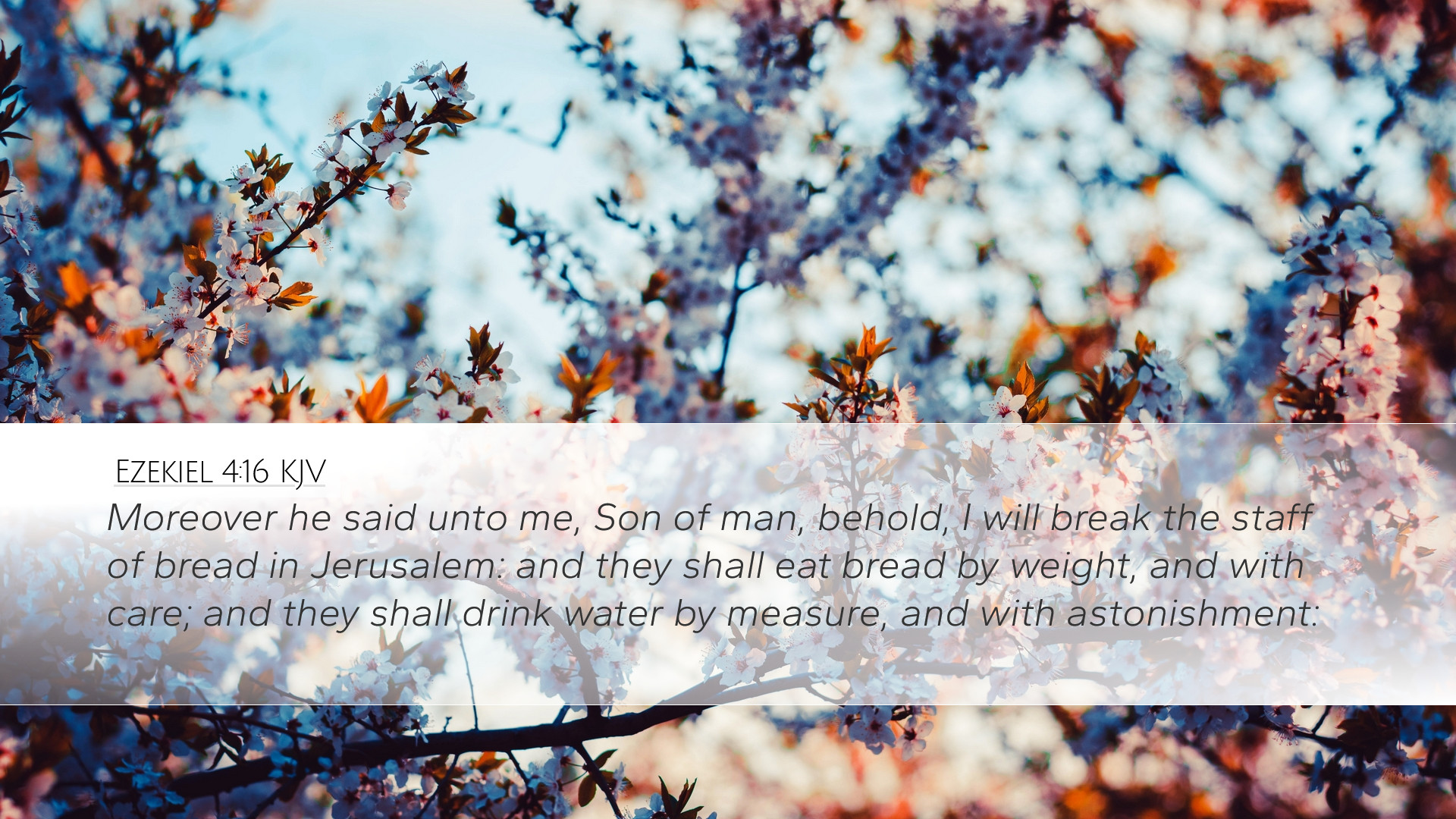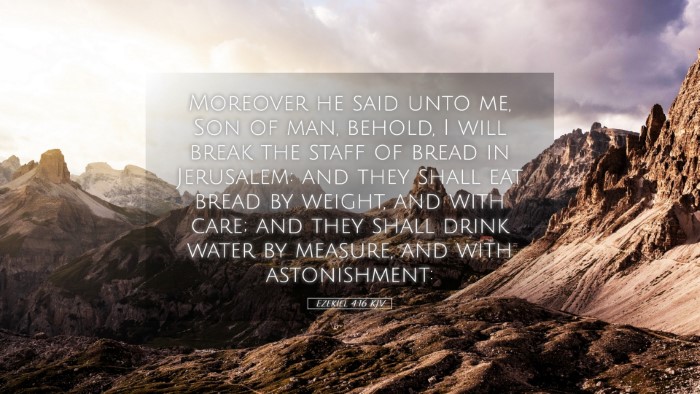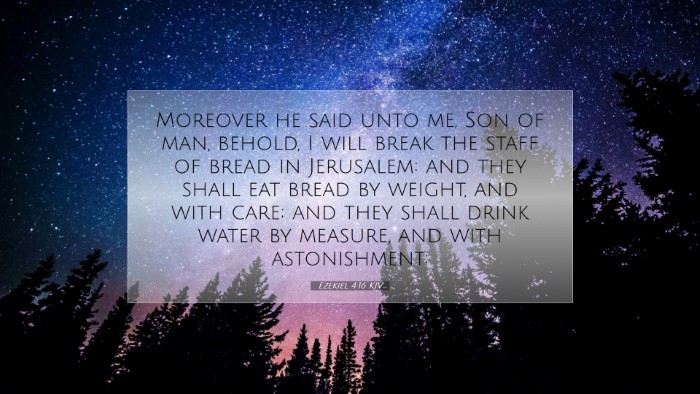Ezekiel 4:16 - Commentary and Insights
In Ezekiel 4:16, God commands the prophet Ezekiel to make a significant demonstration of the coming famine in Judah, which serves as a profound metaphor for the spiritual state of His people. This verse states:
"Moreover, He said to me, 'Son of man, behold, I will break the staff of bread in Jerusalem; they shall eat bread by weight and with anxiety, and they shall drink water by measure and with dread.'"
Contextual Background
The Book of Ezekiel presents a prophetic message during an era of impending doom for Jerusalem. Ezekiel, as a priest and prophet, acts as a spiritual sentinel, tasked with delivering God’s judgment and the coming consequences of Israel's disobedience. The actions and symbols used throughout this book serve as both warnings and lessons for repentance.
Verse Analysis
This verse reveals several critical themes including divine judgment, the seriousness of sin, and the effects of disobedience on community life. The breaking of the "staff of bread" symbolizes a profound deprivation of basic sustenance, indicating a severe famine as a direct result of the people's unfaithfulness to God.
God's Sovereignty Over Provision
Albert Barnes emphasizes that bread, throughout scripture, often signifies God's provision for His people. The breaking of this "staff" indicates a withdrawal of God's blessings. Similarly, Matthew Henry reflects that where there is a neglect of spiritual provisions, physical consequences inevitably follow. This act of reducing sustenance serves as both judgment and a solemn warning of spiritual realities.
Emotional State of the People
The phrase "they shall eat bread by weight and with anxiety" reveals the emotional toll that this divinely ordained famine would inflict. Adam Clarke describes this anxiety as a crippling fear resulting from a lack of trust in God's provision. Food, which should provide nourishment and comfort, becomes a source of dread and uncertainty, highlighting the disconnect between Israel's faith and their reality.
Theological Implications
This verse carries profound theological implications about God’s relationship with humanity, particularly concerning obedience and judgment. It serves as a reminder that neglecting the covenant relationship leads to tangible and dire consequences. Additionally, the idea of experiencing sustenance in a fearful manner calls into question the nature of reliance on material goods.
Symbolism of Bread
In biblical theology, bread often represents life and sustenance, as noted by Matthew Henry, who states that "man shall not live by bread alone, but by every word of God." The breaking of bread becomes a metaphor not just for famine, but for spiritual starvation, reminding us that physical sustenance is futile without spiritual nourishment.
Call to Repentance
The imagery of mindful eating and measuring water reflects the urgent call to repentance. As noted by Albert Barnes, each grain of bread and cup of water becomes a poignant reminder of the consequences of sin and the necessity of returning to the Lord. This admonition compels us to consider our spiritual condition and our reliance on God’s provision in all aspects of life.
Applications for Today
For contemporary pastors and theologians, Ezekiel 4:16 serves as a call to examine both personal and corporate spiritual health. The anxiety experienced by the people of Jerusalem parallels the uncertain times faced today.
- Reflection on Spiritual Nourishment: Just as physical hunger leads to anxiety, spiritual neglect breeds unrest. Leaders are called to foster environments where God’s word is the primary source of nourishment.
- Community Responsibility: The corporate aspect of this judgment highlights the responsibility of the faith community to uphold the truth of God’s word, ensuring that collective sin does not lead to shared consequences.
- Embrace of God's Provision: Just as the people were reminded of God's ability to provide, today’s believers must trust in God’s providence amid uncertainty.
Conclusion
Ezekiel 4:16 powerfully encapsulates the intersection of divine judgment and human condition. The messages conveyed through this verse are timeless and instructive for any community of faith. As we reflect on the weight of God's commands and the serious implications of neglecting our relationship with Him, may we always strive for a deeper reliance on His provision, both materially and spiritually.


